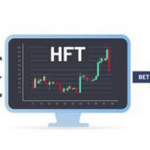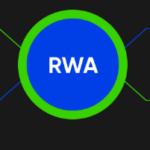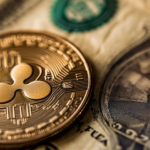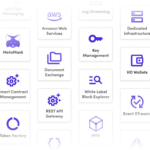In this post, I will explain the different ways to invest in NFT music royalties, one of the latest developments in music and blockchain technology.
Nowadays, with the invention of NFTs, investors can earn passive income by buying shares tied to royalties of songs and albums. I will tell you the steps that you should take along with the important points needed to be considered in the beginning.
What Are NFT Music Royalties?
NFT music royalties mark a new frontier for both artists and investors seeking to capitalize on revenue streams associated with music, thanks to blockchain technology.
By transforming music rights into NFTs (Non-Fungible Tokens), musicians can market a fraction of their royalties for direct purchase through automated systems.
These NFTs serve as stakes representing portions of income produced by a song or album. Owners of such NFTs are entitled to a portion of the income every time the music is streamed, played, or sold.
This paradigm shift enables musicians to have more independence over their royalties while giving investors the opportunity to earn passive income linked to music.
How To Invest In NFT Music Royalties
Introduction to Opulous
This website grants users the ability to own shares of music NFTs, giving them the opportunity to invest in the royaties of particular songs and albums through a platform called Opulous.
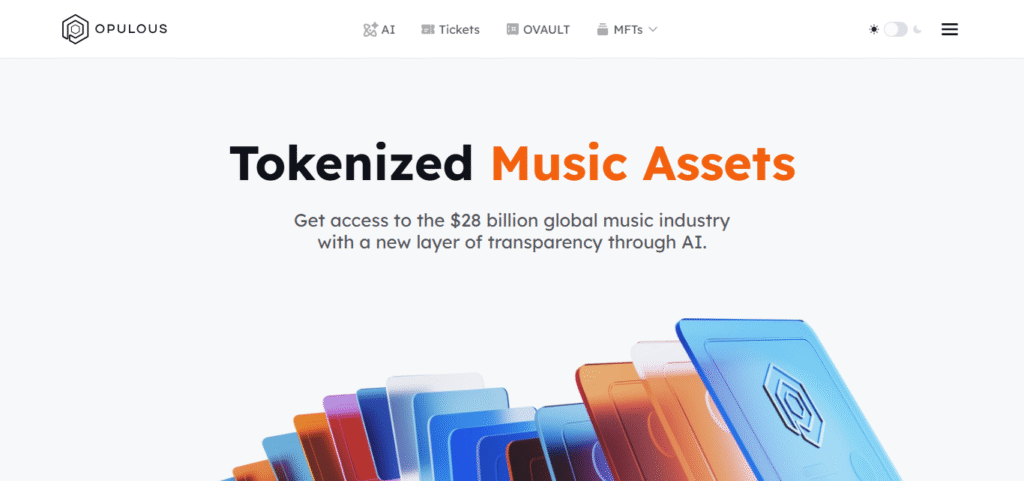
It brings together artists and investors who want to earn through music in a fan-based decentralized environment powered by blockchain technology. Opulous features a new model of passive income opportunity using music royalties.
Creating Your Account
- Step 1: Proceed to the website Opulous.com and create an account.
- Step 2: Sign in to your profile and add a crypto wallet, either MetaMask or Trust Wallet, with your Opulous account.
- Step 3: Make certain your wallet has cryptocurrency balance (Usually ETH or some other token) for transaction purposes.
Finding Available NFT Music Royalties
- Step 1: Check out the offered music NFTs and venture through the Opulous marketplace.
- Step 2: Sort through music projects by artist name or genre or by specific NFT offering to locate the most attractive investment options.
- Step 3: Analyze crucial information of the music NFT, including ownership royalty percent, artist’s history, and the anticipated revenue.
Acquiring Music NFTs
- Step 1: If you have already picked a music NFT that is of interest to you, click on it for some further exploration.
- Step 2: Pay attention to the detailed terms of the offering, which includes the royalty rate, total price, and duration of investment.
- Step 3: Connect your wallet and complete the transaction to confirm the purchase. After the transaction settles, the NFT will automatically appear in your wallet.
Gaining Royalties
- Royalties are paid out and shared with the NFT holders as the music is streamed, sold, consumed, or otherwise.
- Payments will be paid to the holder’s wallet according to his share of the royalties, and Opulous allows tracking of earnings directly on their platform.
Selling Your Music NFT
- If you later decide to divest your asset, Opulous lets you sell your music NFT on the platform as well as on secondary market.
- Potential for profit through resale comes from the fluctuating value of the NFT, which is largely determined by the popularity of the music along with the success of the artist.
Why Invest in NFT Music Royalties?
Passive Income: As a NFT holder, you obtain a portion of income when the music is streamed, sold, or used commercially.Such royalties provide you with passive income.
Direct Support for Artists: NFTs enable artists to earn more control over their creations while also making it easy for supporters and investors to provide financial help directly, without going through record labels.
Wide Ranging Investment Options: Profiting from NFT music royalties gives you opportunities from outside stocks and real estate, thus diversifying investments and exposing you to the advanced world of digital music and blockchain technology.
Access to Emerging Technology and Performers: Buying royalties from lesser-known performers ahead of time can lead to significant rewards if the performer reaches the mainstream. This can become a powerful unlocking for newly emerging talents as well as trends linked with the music world.
Transparency and Security: Blockchain technology facilitates transparency by enabling you to monitor your earnings and confirm ownership. Moreover, NFTs offer secure verification of ownership, thus diminishing risks of fraud or misappropriation.
Potential for Appreciation: NFTs associated with music royalties can also increase in value should the artist gain more recognition, thus providing an opportunity to profit from reselling them on secondary markets.
How NFT Music Royalties Work
NFT music royalties refers to the use of blockchain technology to fractionalize revenue streams from music into tradeable assets called NFTs. The entire process happens in a few steps:
Music Tokenization
It begins from monetization where an artist, or a rights holder, tokenizes their rights to music by creating an NFT for a fraction of the royalties from a song, album, or any music piece. This NFT serves as claim to the cash flows, hence a digital certificate of the music royalties.
Smart Contracts
These priceless tokens are sold on online marketplaces and can be auctioned by investors through an NFT marketplace. A smart contract will be deployable on a blockchain such as ethereum that automates the cash flow division between NFT holders. Each NFT’s percentage share of royalties, payment methods, streaming, downloads, or any monetized source has to be predetermined in the contract.
Buying and Selling NFTs
After minting the music NFT, it can be listed on a marketplace to generate an income. Investors willing to take a share of the royalty profit can buy these NFTs. Price however, is influenced by the NFT cash flow from token song performance, expectancy on artist popularity, and offered royalties.
Distribution of Royalties
The payment is distributed, through the smart contract, to the holders of the royalties bearing NFT, each time the music earns income (e.g. from streaming on Spotify, intricate radio plays, licensing, etc.) according to the value of percentage ownership of royalties held.
Non Active Income
NFT owners receive payments from royalties for as long as the music continues to be an income-generating asset, making it a passive investment with continuous yield over time.
Sale and Ownership
In regard to ownership of NFTs, holders are able to freely trade and sell music NFTs on various secondary markets. The value of these NFTs is subject to increase or decrease depending on the artist’s overall success and popularity of the particular song. This gives rise to opportunities of potential profit beyond the perceived passive income gained from royalties.
Where to Buy NFT Music Royalties
Emanate
Emanate is a music platform where creators can mint music NFTs and split royalties with buyers.

Investors can purchase NFTs linked to songs and receive a share of revenue as the song earns money. It is built to achieve clarity and equity concerning royalty payments for all participants in the transaction.
Audius
Audius is a music streaming platform that is decentralized and permits artists to publish NFTs of their songs.

Although not centric about royalties, Audius allows musicians to create NFTs that can be bought by the NFTs’ holders with the notion of earning profits in the future.
The platform also provides tools for revenue sharing with the fans and artists using the AUDIO token.
Sound.xyz
Sound.xyz allows artists to create music NFTs that can be issued in limited quantities. Fans can purchase music NFTs of their favorite artist directly on the platform which helps support them.

Besides looking for new talent, the platform focuses on special releases and invests in music NFTs that could potentially offer future royalty payments or access to hidden contents.
Nifty Gateway
Artists can release music NFTs on Nifty Gateway, which is an NFT marketplace. Some artists provide NFTs that symbolize music royalties, exclusive tracks, or other exclusive assets, thus enabling fans to purchase them as investments and profit from their sales in the future.
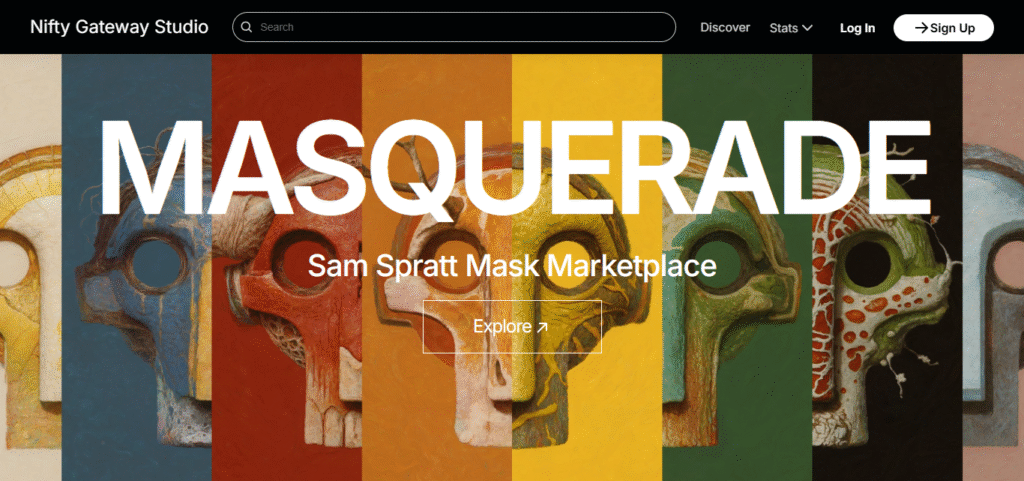
Additionally, the platform has Ethereum and USD payment options, meaning investors and collectors from different ways of life are able to engage.
Tips for Successful NFT Music Royalty Investments
Analyzing an Artist and Their Investment Capabilities
Make sure to analyze all the artists and their songs before investing in music NFT royalties. Check their popularity, past accomplishments, fan following, and how much they can grow.
Artists with established fanbases and strong past performance tend to provide stable returns, while up-and-coming artists pose greater risks, but with potentially better rewards.
Allocating Your NFT Royalties Revenue Portfolio
Just like any investment, allocating your NFT royalties revenue portfolio helps improve the return on investment. Rather than concentrating on one artist or genre, consider spreading your portfolio among different artists, genres, and even platforms.
This way, if one asset doesn’t perform well, there are other assets to balance the risk and chances of getting a positive return increase.
Researching Market Shifts and NFT Music Platforms
Since the NFT music market is rapidly changing, it is very important to understand the changes in the market, new platforms coming up, and the shift in purchase trends.
Keep an eye on news relating to the industry, updates to the platform, and performances by different artists to understand the potential direction of the market. With such knowledge, you will be able to make calculated and timely investment decisions.
The Future of NFT Music Royalties
Enhanced Control by Artists: Artists have more control over their earnings and ownership, leading to decreased dependence on record labels.
The Growth of New Platforms: There will be other NFT markets, significantly increasing opportunities for investors and artists alike.
Streaming Integration: There could be the possibility of integrating NFTs with streaming platforms like Spotify for effortless royalty payment collection.
Different Revenue Streams: Artists have the opportunity to offer NFTs for special content, unique experiences, and collaborations.
Defined Laws: There will be additional laws to guarantee appropriate copyright and royalties within the distribution.
Mainstream adoption across genres: Royalties in music NFTs will diversify from specific niche genres to popular charts.
Conclsuion
In conclusion, an investor can passively earn income while supporting artists by purchasing NFTs that are associated with NFT music royalties.
It is possible to partake in the success of songs and albums parties for these NFTs as retrieve share NFTs that NFTs bound to music royalties.
Provided an investor does thorough research, diversifies their portfolio, and keeps themselves abreast with trends, the evolving music industry provides ample fruitful opportunities through NFT music royalty investments.






